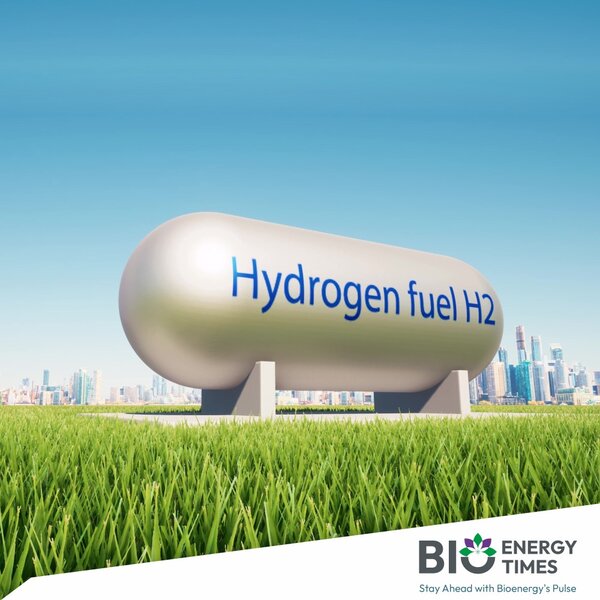“Sustainability is my passion, and it is also at the heart of many activities that we do in our group at KPIT,” says Ravi Pandit, Chairman of KPIT Technology Ltd., Pune. This philosophy fuels KPIT’s dedication to developing sustainable transportation solutions, particularly focusing on the crucial role of hydrogen fuel cells in the heavy-duty transport sector.
Hydrogen Fuel Cell Technology: A Gateway to Cleaner Transport
As Chairman Ravi Pandit emphasizes, KPIT has been at the forefront of hydrogen fuel cell research for nearly a decade, recognizing its potential to revolutionize sustainable transportation. Hydrogen fuel cells convert chemical energy from hydrogen into electricity through a reaction with oxygen, with only water and heat as byproducts. This technology offers a path away from fossil fuels and a reduction in greenhouse gas emissions, making it a game-changer for the transportation sector.
The Merits of Hydrogen Fuel Cell Technology
Zero Emissions: The process emits nothing but water and heat, presenting a clean alternative.
Enhanced Efficiency: Hydrogen fuel cells boast higher efficiency rates compared to traditional combustion engines.
Renewable Source: Hydrogen can be sourced from a multitude of renewable resources, ensuring ongoing sustainability.
In Pursuit of High-Yield Biomass: Energy Cane’s Role
Mr. Pandit underlines the critical role of biomass selection: “The first part, namely, generating biomass is extremely critical. This involves finding out the biomass which can give the highest yield with the least amount of land and the least amount of water.” KPIT’s success story aligns with this vision, having identified a world-leading strain called Energy Cane through collaboration with a national laboratory.
Energy cane is a specialized sugarcane breed optimized for biomass production over sugar yield. It is distinguished by its robust growth, substantial fiber content, and adaptability to diverse climates.
Selecting Energy Cane
Superior Biomass Yield: Energy cane outperforms traditional crops in biomass yield, making it an excellent candidate for biofuel production.
Sustainable Growth: It flourishes on marginal lands, avoiding competition with food crops and promoting sustainable land management. This is particularly significant in India, which has vast stretches of degraded land, as highlighted by Mr. Pandit.


Renewable Advantage: As a perennial plant, energy cane provides a consistent biomass supply, solidifying its role as a renewable energy source.
KIPT’s Alliance with National Laboratory and the Gokhale Institute
KIPT’s partnership for maximizing the potential of energy cane for hydrogen production extends beyond just a national laboratory. They have also established a collaborative effort with the Gokhale Institute of Politics and Economics (GIPE). Founded in 1930, GIPE is a premier research institute in Pune, India, with a focus on economics and political science. Recognizing the critical economic and environmental implications of sustainable transportation, GIPE established the Center for Sustainable Development (CSD).
KIPT’s collaboration with both the national laboratory and the GIPE’s CSD strengthens their approach by:
Combining Scientific Expertise: The national laboratory provides advanced scientific capabilities for research and development.
Economic and Policy Analysis: GIPE’s CSD brings expertise in economic and policy analysis, crucial for large-scale implementation of sustainable solutions.
Expected Achievements
Enhanced Hydrogen Production: The collaboration aims to significantly boost the hydrogen yield from energy cane.
Cost Reduction: Innovations are expected to decrease the cost of hydrogen production, positioning it as a strong alternative to traditional energy sources.
Scalability Focus: The goal is to create scalable solutions that promote widespread adoption of hydrogen fuel cells in various sectors.
Impacts on Sustainable Transportation
Utilizing hydrogen fuel cells powered by energy cane has the potential to substantially lower the carbon footprint of the transportation sector. KIPT’s initiatives are crucial in the fight against climate change and the pursuit of environmental preservation.
Energy Security Enhancement
Generating hydrogen from renewable resources like energy cane strengthens energy self-sufficiency, reducing dependence on imported fossil fuels and fostering a more stable energy landscape.
Economic Upsides
The embrace of hydrogen fuel cell technology can drive economic growth, creating new opportunities in research, manufacturing, and sustainable farming. It also opens doors for further innovation and investment in the renewable energy sector.
In Summary
Ravi Pandit’s participation in a government meeting on utilizing degraded land for bioenergy generation reflects the growing momentum behind sustainable solutions. KPIT’s pioneering efforts in hydrogen fuel cell technology and Energy Cane cultivation, along with their collaborations with a national laboratory and the Gokhale Institute’s Center for Sustainable Development, serve as a beacon, paving the way for a cleaner and more sustainable transportation future.
The views and opinions expressed in the article by Dilip Patil, Managing Director of Samarth SSK Ltd., are solely his own.














